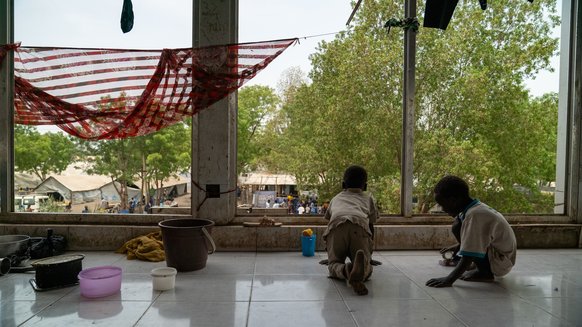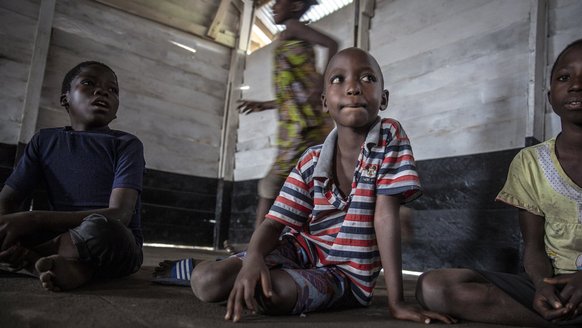Sudan
Meet Nyamojwok (16)
When war erupted in Sudan in 2023, Nyamojwok returned to South Sudan with her siblings, but things didn't get easier after she crossed the border...
Warch video Find out how she is using her experiences to become a role model for others.
Facts and figures
- Children in need of humanitarian aid: 14 Million
- Total number of War Child participants in 2024: 31,000
- Number of people displaced: 12.7 Million
National Situation
Sudan has been the scene of prolonged armed conflicts - both internal and external - since 1950. Political and border disputes have fuelled tensions inside the country. Violent clashes for control of natural resources - from grazing rights to oil - contribute to the atmosphere of violence.
The current ongoing armed conflict which began in April 2023 has created the worst humanitarian situation in the world. Over 25 million people have been affected, with close to 12.7 million people displaced and in urgent need of protection, mental health and psychosocial support, and education. Of that number, around 50% are children.
More than 1 million people – both Sudanese refugees and South Sudanese returnees – have sought refuge in South Sudan, including an estimated 713,000 children. At least 72,000 people have reached Uganda seeking shelter.
This influx has placed immense strain on neighbouring countries like South Sudan which is already grappling with existing humanitarian challenges, and where War Child is also operating.
Situation of Children
The ongoing crisis has particularly affected vulnerable groups such as women and children, who arrive in refugee camps exhausted and traumatised. The conditions in these camps are dire, with overcrowding, limited access to food, water, and healthcare, highlighting the urgent need for continued humanitarian support.
With 90% of schools closed and an estimated 17 million children currently out of school, education is in freefall.
What We Do
In the face of ongoing violence and mass displacement, War Child is responding to the war in Sudan by working with trusted local partners to deliver life-saving support to children caught up in this conflict – prioritising protection, mental health, and education even in the hardest-to-reach areas.
These pilot efforts will lay the groundwork for phase two of our response, where we will introduce our evidence-based Care System, including TeamUp and other evidence-based mechanisms that are a part of War Child's Care System aimed at improving the wellbeing children and youth affected by conflict.

